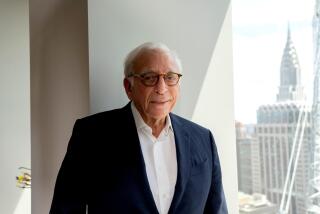Many Funds Need to Revamp Boards
Mutual fund companies, ordered by regulators Wednesday to let more outsiders govern their work, now need to tackle the logistics of reshuffling the boards that oversee a $7.5-trillion industry.
An estimated 8 out of 10 fund boards will have to find an independent chairman. In addition, the Securities and Exchange Commission required that three-fourths of the board be independent, not just a majority as required now. Funds will have about 18 months to comply.
“The big deal is that there will be a shift in power,” said Tamar Frankel, a law professor at Boston University who specializes in mutual funds.
Coming up with new board members might be the easiest step because most trustees are found by word of mouth, without a headhunter’s help.
“The first place to look” for recommendations on new members “will be to the existing directors,” former SEC Chairman Harvey Pitt said. “Who better to ask than someone who is already serving?”
But college professors, executives and politicians, who have been happy to earn salaries from $10,000 to as much as $200,000 to supervise mutual funds, may no longer fit the bill. Now boards need to be filled with people who know how mutual funds work, such as lawyers, accountants and economists.
Boards may also shrink in size as members find they need to put in more hours on the job.
“It will no longer be realistic to spend only 10 minutes discussing mutual fund fees and people will realize they can’t sit on the boards of so many funds,” Frankel said.
Costs may also rise as trustees may demand more pay and better insurance coverage to cover any liability if they make a mistake.
Some trustees will also bow out altogether.
“There are definitely going to be people who say, ‘Thanks but no thanks,’ because they don’t want the added responsibility,” said Thomas Westle, a partner at law firm Blank Rome.
More to Read
Inside the business of entertainment
The Wide Shot brings you news, analysis and insights on everything from streaming wars to production — and what it all means for the future.
You may occasionally receive promotional content from the Los Angeles Times.










